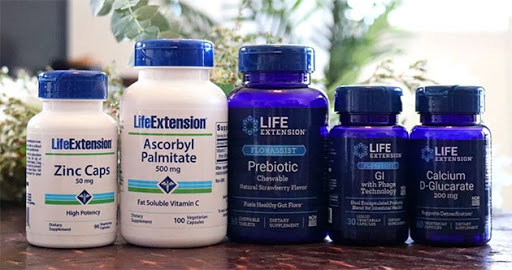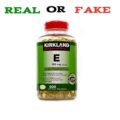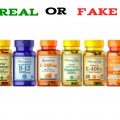
Life Extension is a health and wellness company that promotes the science of a healthier life. The company claims to leverage on 40 years of experience to give users of their supplements the latest innovations in nutrition, science, and health. According to their website, Life Extension has pursued innovative advances in health, conducting rigorous clinical trials and setting some of the most demanding standards in the industry to offer a full range of quality vitamins and nutritional supplements, and blood-testing services.
The World Health Organization has estimated that more than 2 billion people worldwide experience deficiencies in the intake of essential vitamins and minerals. In the United States (US), a number of shortfall nutrients have been identified in the general population as described by the Dietary Guidelines Advisory Committee to the US Departments of Health and Human Services and Agriculture, which include vitamins A, C, D, and E and choline, calcium, magnesium, iron, and potassium. Further, deficiencies in calcium, potassium, dietary fiber, and vitamin D are considered to be of public health concern based on their demonstrated role in health maintenance combined with their known low intake levels.
Despite more than a century of research and innovation, nutritional shortfalls continue. According to a Harvard Health publication, many of those existing supplement studies were observational and didn’t test a particular supplement against a placebo (inactive pill) in a controlled setting. The results of more stringent randomized controlled trials haven’t yielded the same good news. Often, the enthusiasm for these vitamins and supplements outpaces the evidence. And when rigorous evidence is available from randomized controlled trials, often the results are at odds with the findings of the observational studies. Because observational studies may not fully control for dietary factors, exercise habits, and other variables, they can’t prove whether the treatment is responsible for the health benefits. People who take supplements tend to be more health-conscious, exercise more, eat healthier diets, and have a whole host of lifestyle factors that can be difficult to control fully in the statistical models.
Some supplements that were found to have health benefits in observational studies turned out, with more rigorous testing, to be not only ineffective but also risky. Vitamin E, which was initially thought to protect the heart, was later discovered to increase the risk for bleeding strokes. Folic acid and other B vitamins were once believed to prevent heart disease and strokes—until later studies not only didn’t confirm that benefit but actually raised concerns that high doses of these nutrients might increase cancer risk.
How Good Are Life Extension Supplements?
Scientists are still working to answer this question. The U.S. Food and Drug Administration (FDA) checks prescription medicines, such as antibiotics or blood pressure medicines, to make sure they are safe and do what they promise. The same is true for over-the-counter drugs like pain and cold medicines.
The FDA does not have authority over dietary supplements in the same way it does prescription medicines. The Federal Government does not regularly test what is in dietary supplements, and companies are not required to share information on the safety of a dietary supplement with the FDA before they sell it. The companies are responsible for making sure the supplement is safe, but the FDA does not evaluate the safety of the product before the supplement is sold. So, just because you see a dietary supplement on a store shelf does not mean it is safe, that it does what the label says it will, or that it contains what the label says it contains. Life Extension Supplements like other supplements in the market contain a variety of vitamins and other nutrients. READ: How to Spot Fake Whey Protein Supplements
Should I Buy Life Extension Supplements?
If you are thinking about using Life extension supplements:
- Learn: Find out as much as you can about any Life extension supplements, don’t depend on Life extension supplement reviews on the internet, some of them are paid for. Talk with your doctor, your pharmacist, or a registered dietitian. A supplement that seemed to help your neighbor might not work for you. If you are reading fact sheets or checking websites, be aware of the source of the information. Could the writer or group profit from the sale of a particular supplement? Read more about choosing reliable health information websites.
- Remember: Just because something is said to be “natural” doesn’t mean it is safe or good for you. It could have side effects. It might make a medicine your doctor prescribed for you either weaker or stronger. It could also be harmful to you if you have certain medical conditions.
- Tell your doctor: He or she needs to know if you decide to use Life extension supplements. Do not diagnose or treat any health condition without first checking with your doctor. Learn how medications can interact with dietary supplements. For more information, visit the National Center for Complementary and Integrative Health.
- Buy wisely: Choose brands that your doctor, dietitian, or pharmacist recommend. Don’t buy Life extension supplements with ingredients you don’t need. Don’t assume that more is better. It is possible to waste money on unneeded supplements.
- Check the science: Make sure any claim about a Life extension supplement is based on scientific proof. Life extension the company making the supplement should be able to send you information on the safety and/or effectiveness of the ingredients in a product, which you can then discuss with your doctor. Remember, if something sounds too good to be true, it probably is. READ: Why Older Americans Are ‘Hooked’ on Vitamins and Supplements





